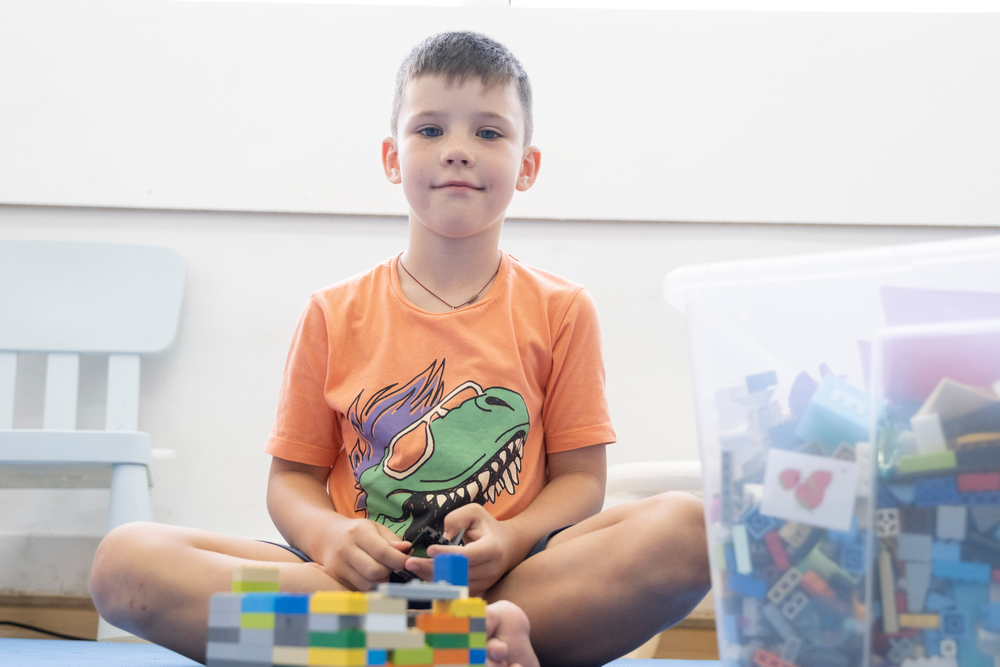Stories of hope from refugee learning centres in Greece
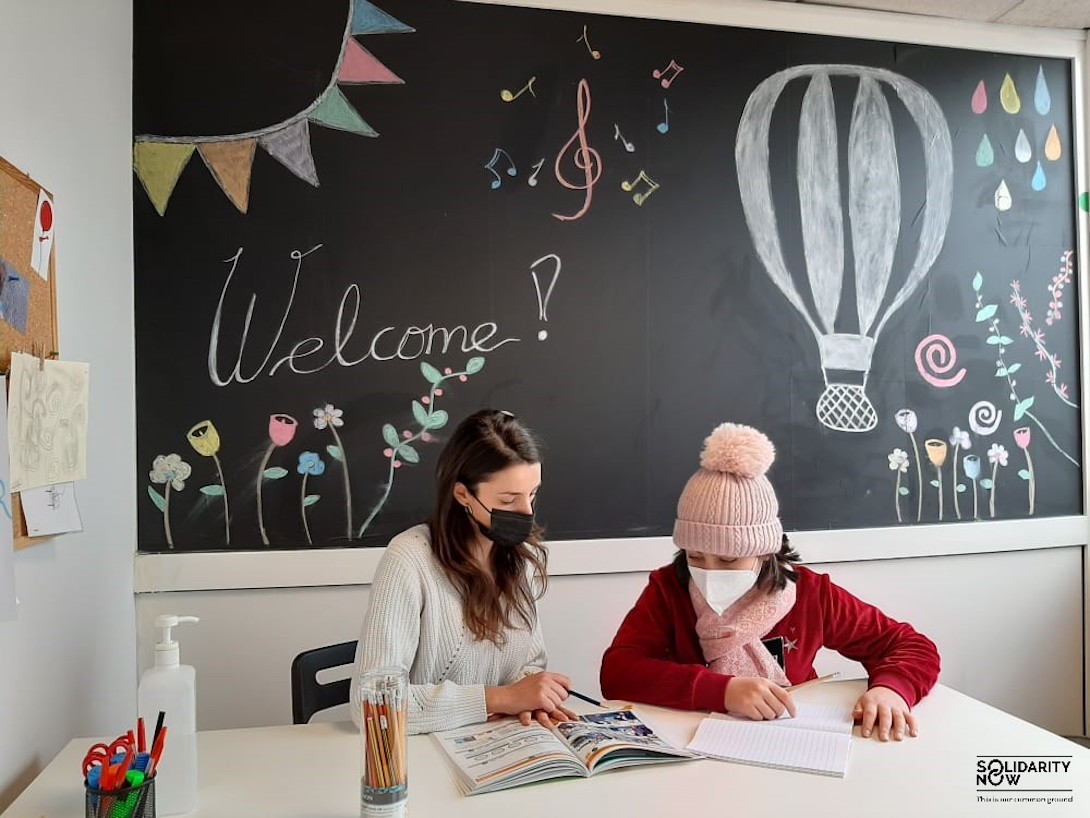
Education in emergencies, Refugees and internally displaced people
Refugee children, teachers and parents in Greece tell how a Theirworld-supported project is delivering quality, inclusive learning and vital support to help students integrate.
When refugee children leave their home countries, it can be a bewildering and daunting experience. A whole new way of life. A different language and culture.
Some find it desperately hard to integrate – especially at school. But a Theirworld-supported project is helping thousands of young refugees in Greece to adapt through a non-formal education programme.
Homework and Creative Activity Centres (HCAC) provide quality, inclusive learning to prepare children aged from four to 17 to move into the school system and to reduce the level of dropouts.
Children like 12-year-old Iliana, who attends an HCAC at the Blue Refugee Centre in the Thessaloniki area in the north of Greece.
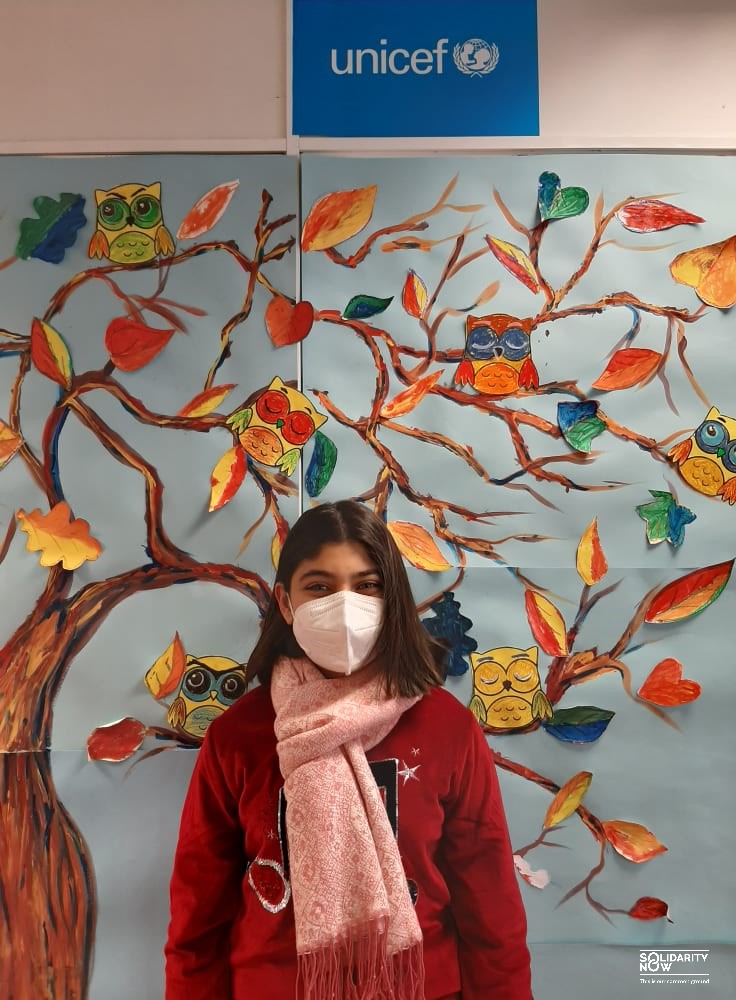
"The centre is like my home, I feel that I am at home."
12-year-old Iliana attends an HCAC at the Blue Refugee Centre in the Thessaloniki area in the north of Greece
“I learned to speak Greek and English. Also, I learned that boys and girls can do the same things,” she said. “The centre is like my home. My favourite thing is when I am hugging my teachers. I love doing my homework and learning new things with them.”
Iliana’s teacher is Louisa Rousomani. She said: “Iliana not only has improved her educational performance but she has also empowered her identity and boosted her self-esteem. She is one of the best students of her class and she has acquired strong social skills that support her integration. We are very proud of her and her family that stands by her side.”
Greece is home to more than 30,000 refugee and migrant children. School enrolment has grown steadily in recent years but about half are still denied mainstream education. The pandemic has only made the situation worse and in the Greek Aegean Islands only 2% of refugee children are in formal education.
To meet the challenge, Greece’s education and migration ministries partnered with UNICEF Greece to launch All Children in Education (ACE) – a national programme backed by the European Commission to enable all refugee and migrant children to access quality learning.
This included the creation of 49 Homework and Creative Activity Centres across the country, aimed at reaching 25,000 children. A grant from Theirworld is supporting 16 of the centres on the islands and mainland, which are run by partners Solidarity Now and the Danish Refugee Council.
“In the centres students can learn Greek and English, participate in STEM activities and receive homework support. Children are encouraged to engage actively in the lessons through various hands-on activities,” explained Chrysa Dadala, a teacher at the HCAC at Koutsochero Camp, near the city of Larissa.
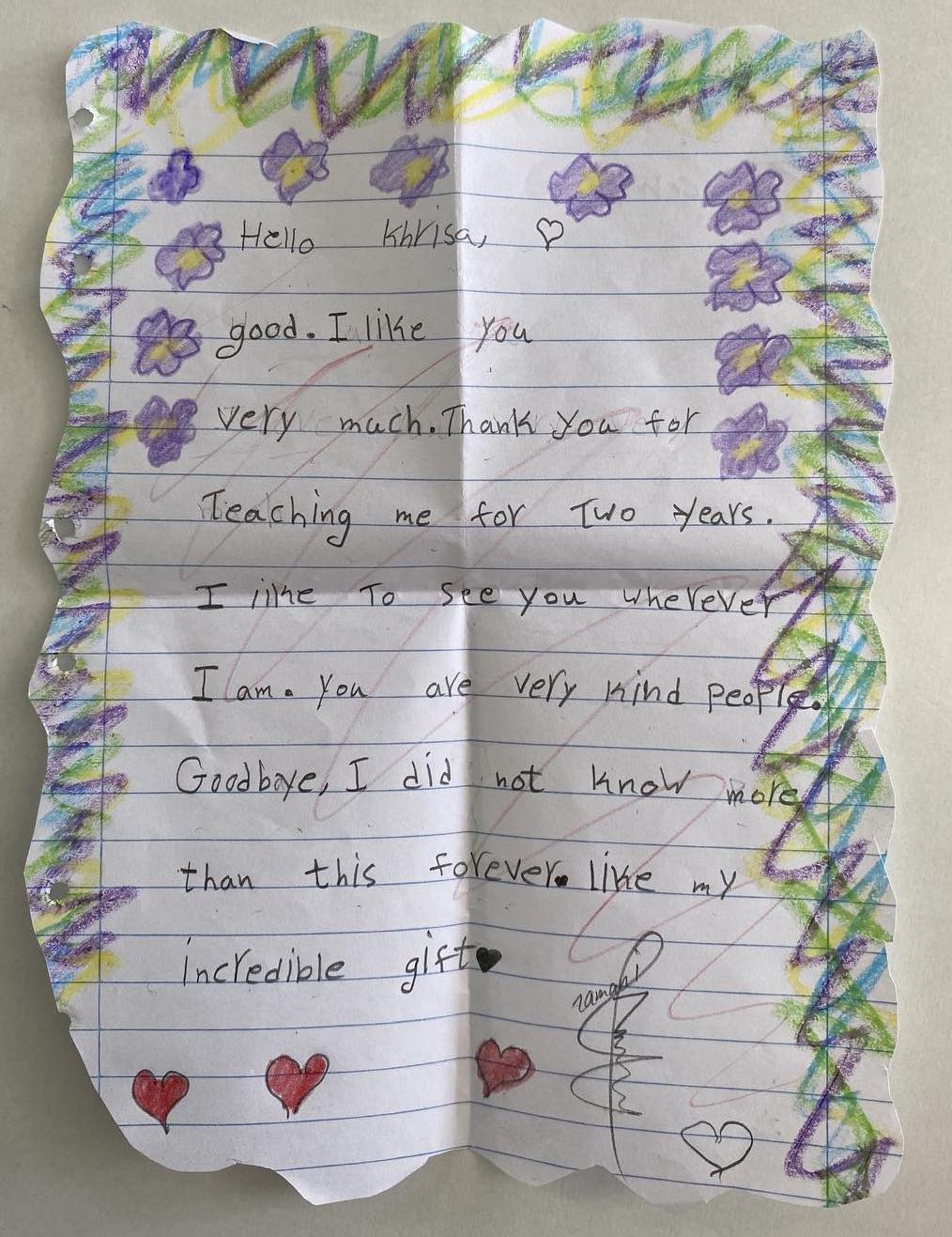
Thank you for teaching me for two years
Letter from Zakieh, an 11-year-old from Afghanistan, who attends the HCAC at Koutsochero Camp
One of the students there is Zakieh, an 11-year-old from Afghanistan. Chrysa said: “Zakieh wrote a letter in English and gave it to her teacher before leaving the camp, to express her gratitude for all that she learned at the HCAC.”
Zakieh said: “I learned to read and write both in Greek and English language and use these languages to communicate.” She added that her favourite things were “to learn new words and new languages and play with my classmates and teacher”.
Only 2%
of refugee children in the Greek Aegean Islands are in formal education
By the end of August 2022, UNICEF is aiming to establish 49 HCAC across various geographical settings to reach 25,000 refugee and migrant children (4-17 years old). Within each HCAC, a multi-disciplinary team of educators, psychologists/social workers and cultural mediators will build school readiness while facilitating children’s enrolment into formal education and reduce the level of drop-outs.
The non -formal education programme delivery will include linguistic literacy (Greek and English), scientific literacy, psychosocial support, and Child Rights Education/ citizenship activities. The grant will contribute to the implementation, coordination and management of up to 16 HCAC across Greece (Aegean Islands, urban, mainland sites, and mobile centres).
The grant will also contribute to –
- provision of technical expertise to support national authorities in the endorsement and implementation of a harmonized educational approach
- Teaching and learning materials
- Monitoring, Evaluation, and Research which will generate evidence of enrolment, attendance & learning
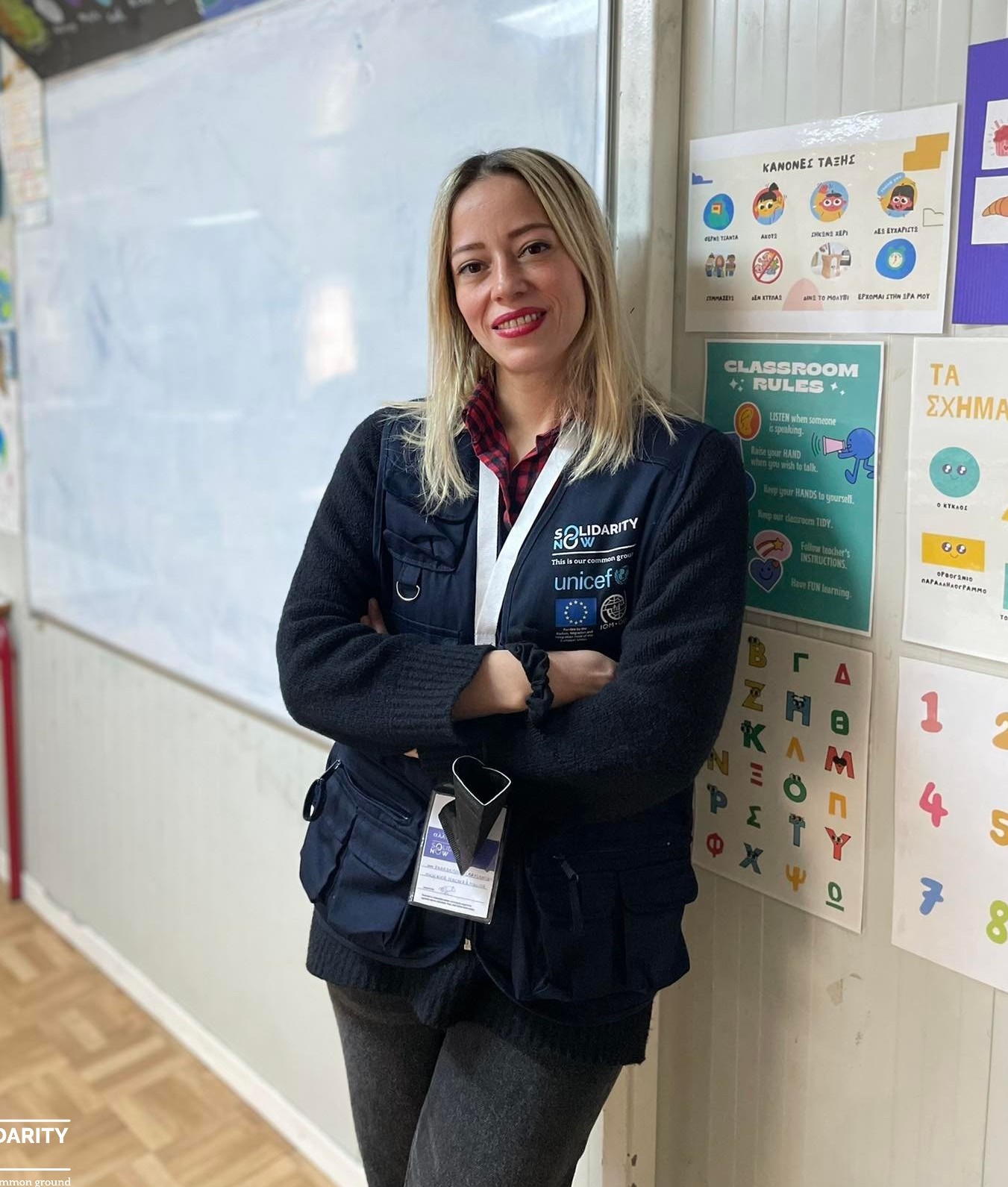
"In the centres students can learn Greek and English, participate in STEM activities and receive homework support."
Chrysa Paradisou, teacher at HCAC refugee camp at the town of Serres.
Within each HCAC, a multi-disciplinary team (educators, psychologists/social workers, cultural mediators) will build school readiness while facilitating children’s enrolment into formal education and reduce the level of drop-outs. The NFE programme delivery will include linguistic literacy (Greek and English), scientific literacy, psychosocial support, and Child Rights Education/ citizenship activities.
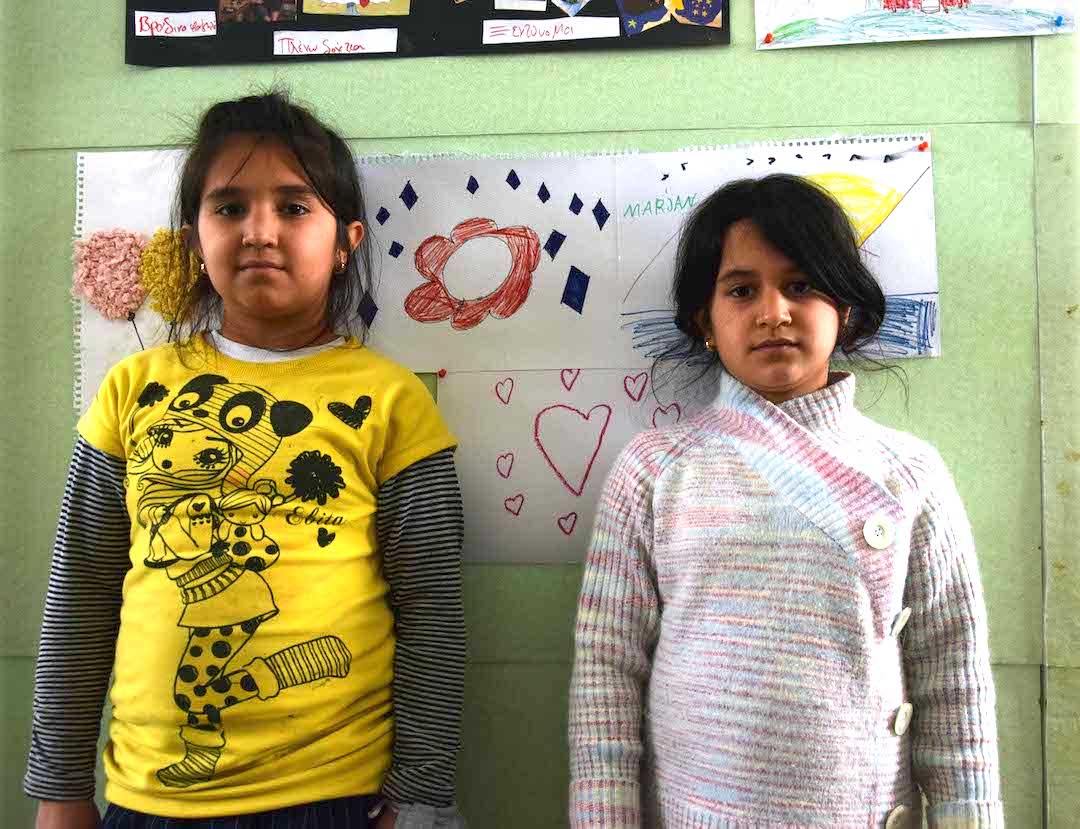
“The teachers repeat the lessons that the children are taught at public school and try to explain again when they have a problem and this really helps them to perform better at public school."
Zaher Shah Eskandri, father of Marzan (10) and Yosa (8) from Afghanistan who attend the HCAC at Schisto refugee camp in Piraeus.

Theirworld's blueprint
Greece has committed to provide every refugee child with an education – using a plan devised by Theirworld. The government’s framework follows a blueprint for reform set out in our 2020 report Finding Solutions to Greece’s Refugee Education Crisis.
A Memorandum of Understanding signed last year by the government and UNICEF commits to providing a route for all 26,000 school-age refugee children in Greece into formal education in a three-year programme expected to cost €34 million. Only about 40% were enrolled in Greek schools at the start of the 2021-22 academic year.
More news

Theirworld’s mission to give children in crises a safe place to learn
